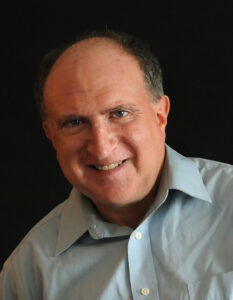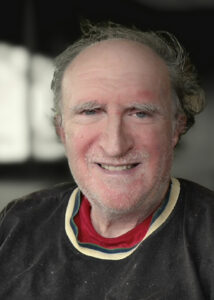
Using an entertaining and journalistic approach, Foul or Fair: Ethical and Social Issues in Sports? covers many provocative and current topics such as what constitutes a sport, the rise of sports gambling and its controversies, issues in college sports, including name, image, and likeness payments for college athletes, youth sports issues, such as the advisability of participation trophies, the psychology of sports fans, mental health issues for athletes,
This intriguing adventure also focuses on the intersection of politics and the Olympics, issues related to sportsmanship, such as whether running up the score or tanking by pro sports teams is appropriate, and whether athletes should speak out on social issues.
The book, published by McFarland Books, includes Author Larry Atkins‘ opinions on these issues, extensive research, and interesting interview quotes from experts, including media professionals, coaches, athletes, and university professors. The issues raised and discussed in the book affect athletes, sports fans, and society as a whole. The book will appeal to both diehard and casual sports fans.
Atkins says that it took more than four years to write the book, which meant balancing writing with teaching four classes per semester.
For his book, Atkins interviewed and quoted many prominent experts, including sports talk hosts Mike Missanelli and Glen Macnow, Philadelphia Inquirer writers Marcus Hayes and Aaron Carter, La Salle University Men’s Basketball Coach Fran Dunphy, and former NFL player Joe Valerio.
The book has positive review blurbs from bestselling author Jonathan Maberry, sports talk radio host Andrew Salciunas, Columbia University Associate Dean and Journalism Professor George Miller, and journalist Debra Wallace, who writes frequently for Parade Magazine.
Salciunas, who co-hosts the morning show with John Kincade on 97.5 The Fanatic, wrote that “Foul or Fair?” is “An incredible read that paints the picture of life inside and outside of sports. People say that sports are the greatest reality shows on television. We say that because sports are not just about what happens between the lines. Athletes, like us, are humans.
Athletes, however, live lives that most of us cannot relate to. This book dives deep into what many of us don’t think about when watching a game, but follow along on social media and the news because we can’t get enough of it. It is informative, entertaining, and very timely as the personalities (and struggles) of athletes become more and more public.”
Atkins has written more than 500 Op-Eds and articles for many major publications, including Newsweek, The Hill, Huffington Post, Washington Post, National Public Radio (NPR Commentaries), Real Clear Politics, The Progressive Magazine, Morning Consult, Chicago Tribune, Dallas Morning News, and the New York Daily News. His work has also been published in the Philadelphia Inquirer and Inquirer Sunday Magazine, Philadelphia Magazine, Philadelphia Metro, and Street & Smith Sports Business Daily. He is a member of the American Society of Journalists and Authors and the Authors Guild.
Atkins is also the author of “Skewed: A Critical Thinker’s Guide to Media Bias, which was published by Prometheus Books in 2016. He teaches Journalism at Temple University and Arcadia University, as well as Social and Ethical Issues in Sports and Sports Law and Ethics at Arcadia. Atkins grew up in Elkins Park and graduated from Cheltenham High School, La Salle University, and Temple University Law School. He played varsity soccer at Cheltenham and varsity tennis at La Salle.

The following is a Q and A with Foul or Fair? Author Larry Atkins
Why did you write the new book?
I’ve always been a sports fan, not just watching the games but also debating the social and ethical issues in sports that arise regularly, such as issues related to sportsmanship, college sports, youth sports, gambling, fan behavior, and Olympic sports. I’ve been teaching social and ethical issues in sports at Arcadia University for around 15 years and that heightened my interest in the topic. I learn something new every semester from my own research in preparing for class and from student comments. I wrote the book to share my knowledge and passion for the topic. I wanted to write my book in a journalistic style that would appeal to hardcore sports fans, casual sports fans, and non-sports fans.
What kind of feedback have you received?
My book has some very positive review blurbs from bestselling author Jonathan Maberry, Philadelphia Sports talk radio host Andrew Salciunas, and Columbia University Journalism Professor and Associate Dean George Miller. There have been some favorable articles about my book that have been published as well.
How has the sports world reacted to the book?
Some sports podcasters have reached out to me for interviews for my book. I look forward to doing interviews and speaking engagements related to my book.
What are a few surprises that you uncovered?
In one of my chapters, I discuss whether activities such as eSports, competitive cheerleading, or competitive eating constitute a sport, as opposed to a game or other activity. I was surprised to find out that Sheep Shearing is a sport that holds international competitions around the world. Some people have advocated that it become an Olympic sport. In another chapter, I was surprised to come across an ESPN interview in 2020 with an NBA player, Vince Carter, who said that it was common for NBA players to be checking their social media feeds on their phones for fan reactions during halftime in the locker room. In my chapter on youth sports, I was surprised to see the rise of specialization of sports for young athletes and the drawbacks that this could have. I’d say that the most shocking and disturbing thing that I discovered was that in the 2000 Paralympic Games in Sydney, almost all of the members of Spain’s gold medal-winning men’s basketball team had pretended to have intellectual disabilities.
What is the most gratifying aspect of publishing a book?
It took me around three or four years to research and write my book. It’s great to see all of that work end up in a physical tangible product that others can see and read. It’s nice to get feedback from other people who read my book and liked it or learned something from it. It was also gratifying to learn even more things about the topics that I covered while researching my book. Publishing a book can also provide a platform that can lead to other opportunities such as media interviews, giving lectures and talks about my book in places like libraries, bookstores, and college campuses, and being able to publish articles on the topic.

What advice do you have for college students or adults who are having a difficult time juggling all of their classes, assignments, and burgeoning responsibilities?
All of us are busy and have to juggle many tasks. It’s not easy. In my case, I teach three or four courses per semester so I don’t have much free time during the school year. In addition to preparing for class, I have to grade around 40 or so rough drafts and final versions per week. I tend to do my grading during the weekends. I also tend to get up very early every day around 5 a.m. to do some of my grading. I would advise people to manage their time well and to put aside time to do their work, assignments, and responsibilities. Make sure to take breaks. Set goals as to how much work you want to get done each time you start doing the work. Separate the work into chunks. In my case, I get into a mindset that I plan to grade 10 or so papers in a certain timeframe. Then I take a break and get back to grading.
What do you enjoy about teaching college journalism?
I like passing on the knowledge that have as a writer and a journalist to many new students each semester. In most cases, they’re blank slates as far as writing from a journalist’s perspective, especially since most of them didn’t write for their high school newspaper. Even though most of the content of my classes stays the same, it stays interesting for me because each class has a different dynamic. It’s especially encouraging when I have a class that has students that are engaged, interested in the topics, and participate extensively in class. I get an adrenaline boost after a good class where everyone had good comments.
How do you recommend your students pivot at a time when journalism continues to be in flux?
I tell them to get their name out there, display their skills, and practice their craft by creating a website, blog, podcast, YouTube content, or large social media presence. I also suggest that they get as many journalism-related internships as possible. They need to network and get to know professionals in the field. I tell them to get clips and writing samples by writing for campus publications, freelancing for newspapers and magazines, and getting involved in campus radio or television stations. I encourage them to develop multimedia skills—writing, photography, video, etc. Finally, I tell them to have geographic flexibility and be willing to go almost anywhere to get the experience right out of school.
Why did it take four years to bring this book to fruition?
I did a lot of research and conducted interviews with 20 experts, including media personalities, coaches, former athletes, and university professors. In a couple of chapters I had over 100 footnotes citing sources. There was also a peer review editing process that took some time.
What were a few of the most noteworthy interviews for your book?
Among some of the well-known people that I interviewed for my book included former Philadelphia Sports talk radio hosts Mike Missanelli and Glen Macnow, La Salle University head men’s basketball coach Fran Dunphy, and former NFL player Joe Valerio.
Leslie Gudel, a former sportscaster nationally and locally in Philadelphia, had some very interesting quotes about the challenges that she faced at first in establishing credibility as a woman in the sports broadcasting field. Philadelphia Inquirer sports reporter Aaron Carter and PhillyLacrosse.com founder and operator Chris Goldberg had interesting quotes about media coverage of high school and college athletes.
Foul or Fair? can be purchased on Amazon and wherever books are sold.
For more information, contact Larry Atkins via email at [email protected]